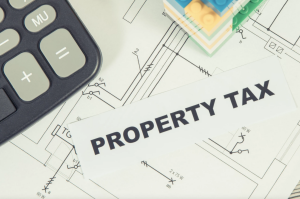News
Republican lawmakers want voters to decide on plan to “throttle” rising property tax bills in Ohio
By: Jo Ingles | Statehouse News Bureau
Posted on:
COLUMBUS, Ohio (Statehouse News Bureau) — There are at least a dozen bills in the Ohio Legislature meant to provide property tax relief to taxpayers, especially now that many are dealing with higher than expected valuations. Two Republican lawmakers want to bring a constitutional amendment on property taxes to voters, possibly this fall.

“I’ve always called it a throttle. It throttles your property tax increases for the future. That is the main point of this amendment,” Wiggam said.
The amendment would limit property tax increases to 4% per year. Wiggam said some areas are seeing increases of 30%.
Wiggam said the issue of rising property taxes is the top concern expressed by his constituents. However, he said there’s a good chance it won’t help many people who will be facing huge tax increases soon.
“The likelihood of getting this done this November is small,” Wiggam said. But he said this would be a good permanent fix that will be brought forward in the next General Assembly if it doesn’t go before voters this year – though Wiggam won’t be behind it, since he’s not running for re-election.
Three-quarters of lawmakers would have to approve the proposed amendment by Aug. 7 to put the idea before voters this fall, and Wiggam says he’s not optimistic it will pass in time.
The bill faces opposition
Rep. Casey Weinstein (D-Hudson) said he’s also hearing a lot about rising property taxes from voters in his district. And he said the legislature must do something to help homeowners with property tax spikes. But he said he doesn’t believe state government should apply a one-size-fits-all policy that he thinks could hurt local governments.
“It’s kind of like a sledgehammer when we create these across-the-board limits on what local governments can do,” Weinstein said.
Instead, Weinstein said he wants changes to the Homestead Tax Exemption. It was expanded a bit last year in the budget. But Weinstein thinks more needs to be done with that exemption.
“We have a bill to create $25,000 to $40,000 of the home’s appraised value or cost and then further expanding that over time is a good approach, a better approach,” Weinstein said.
Weinstein said if lawmakers would expand that exemption, it would help the homeowners who are being hit the hardest by rising property tax valuations. He said if lawmakers would freeze property taxes for anyone 65 or older, anyone with a home less than or equal to $500,000 in value and anyone with an adjusted gross income of less than $50,000 could benefit – which he said could be up to 80% of seniors in Ohio.
A lot of plans but little agreement
A panel of lawmakers has been looking at possible ways to deal with rising property taxes but so far, they haven’t coalesced around specific legislation.
The progressive-leaning think-tank, Policy Matters Ohio, authored a report on how to reduce property taxes. And it agrees with the idea behind Wiggam’s proposal. However, the plan also embraces some ideas Democrats have pushed.
And while lawmakers say property taxes are a top concern of Ohioans, the bills driving hundreds to come to the Statehouse to testify are those that tackle controversial social issues.
You can read more about why property values are rising so quickly in WOUB’s series The Housing Squeeze.

